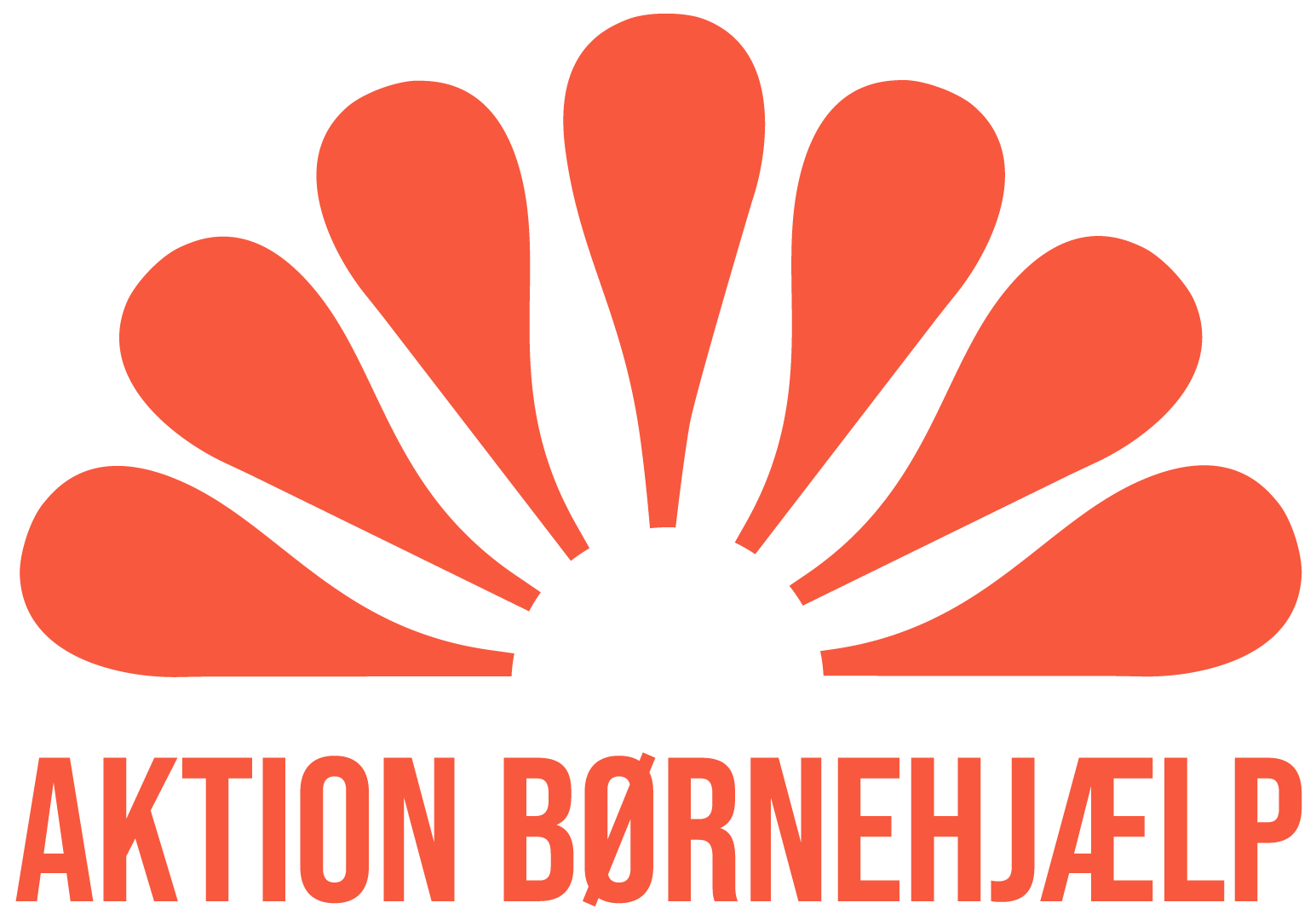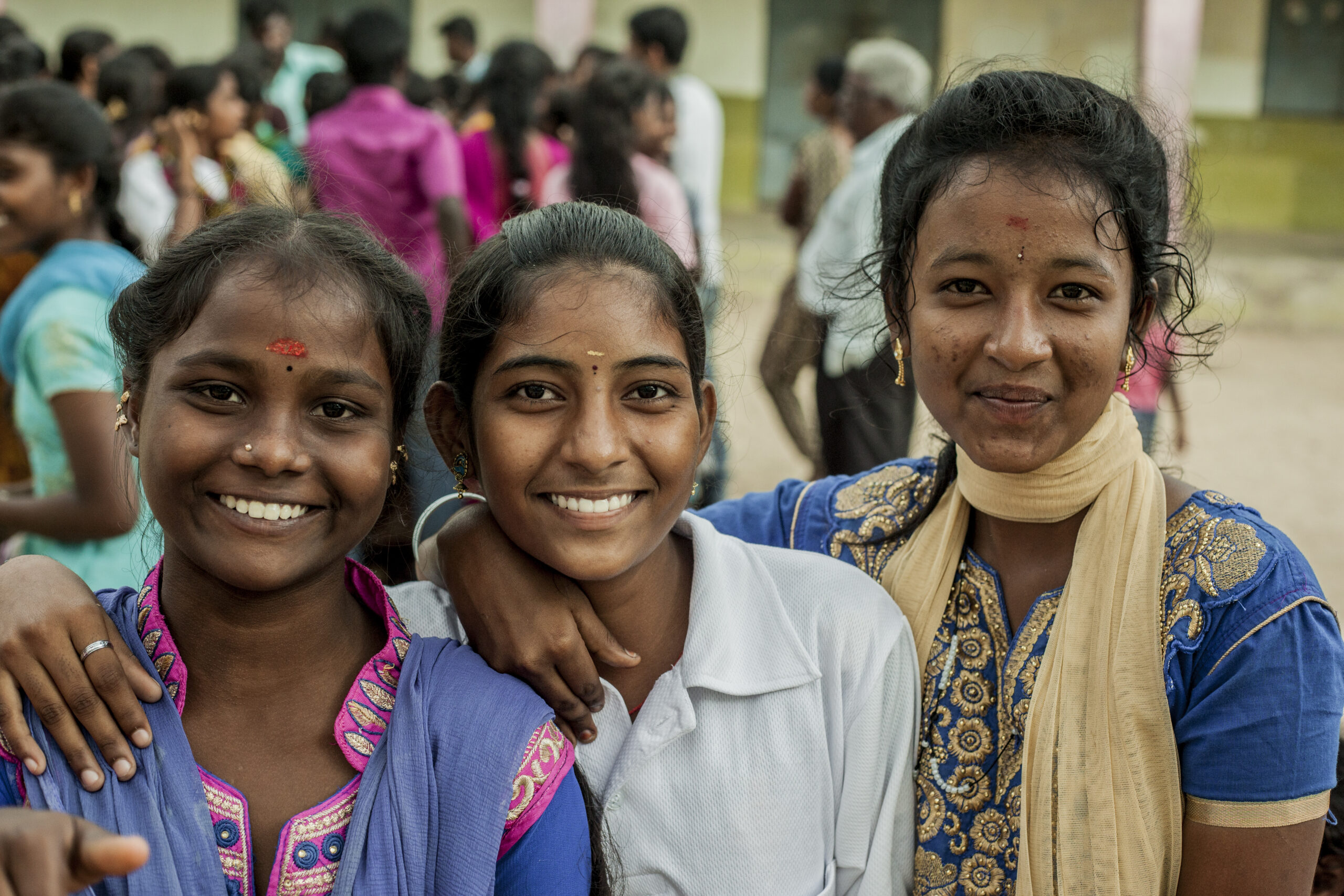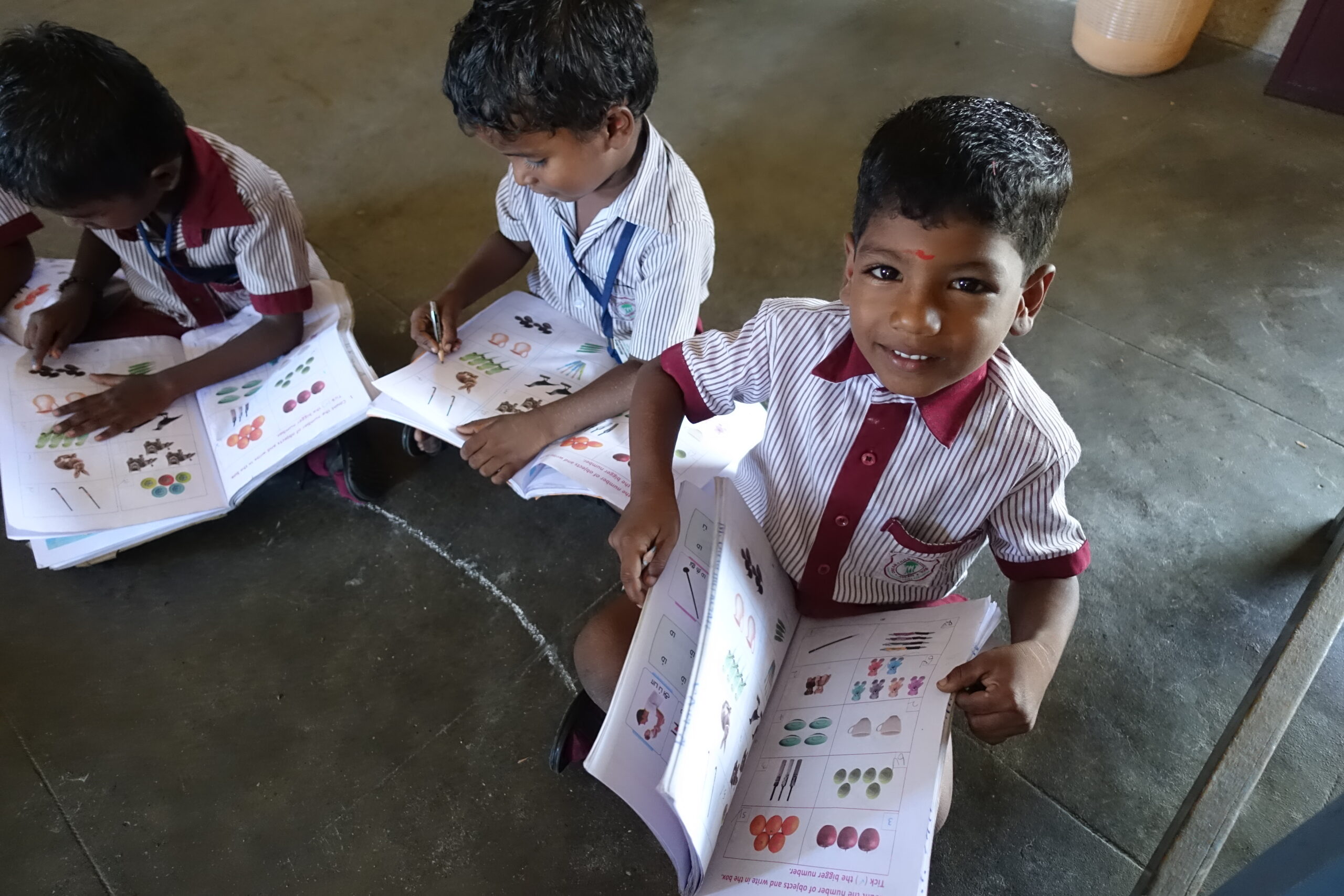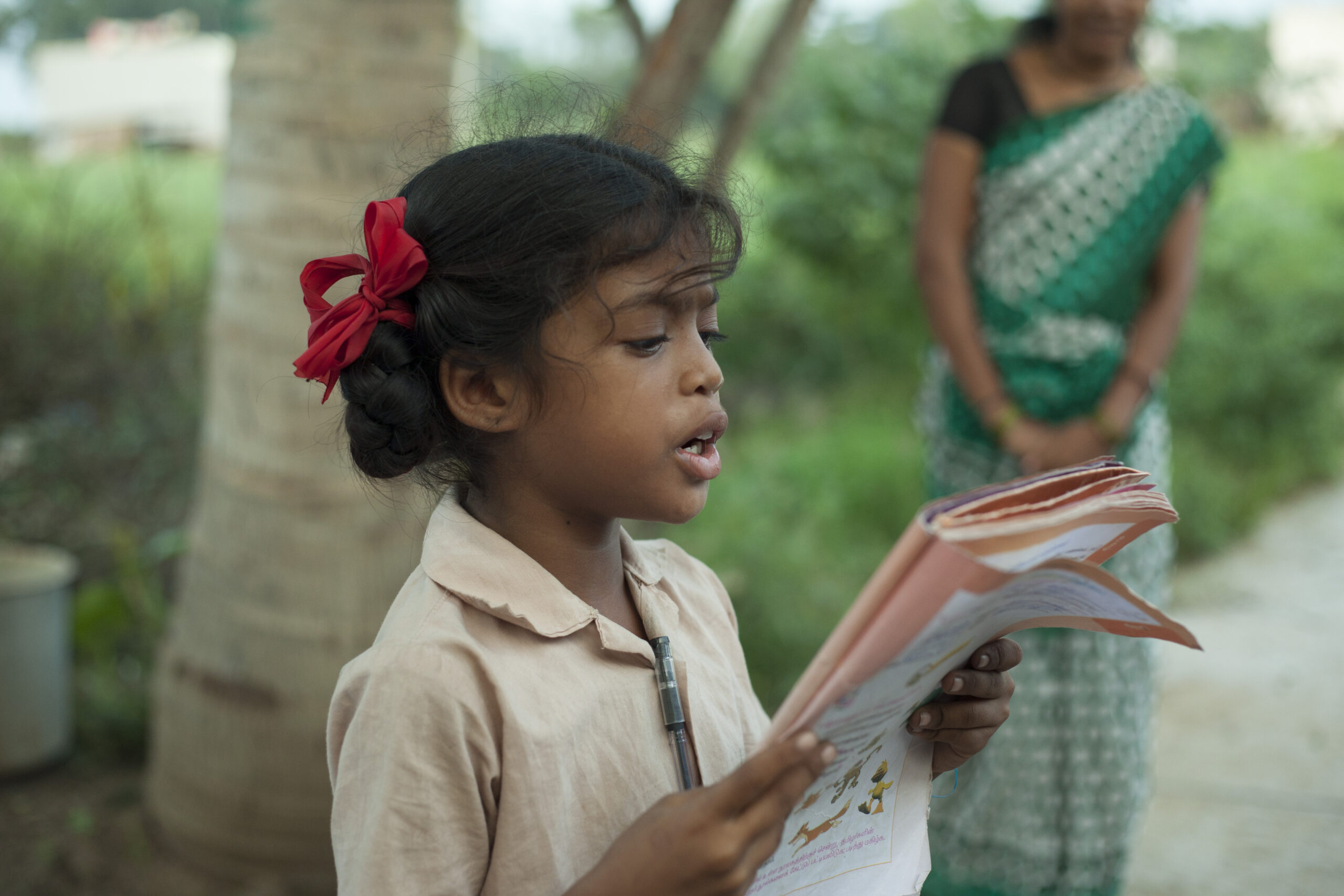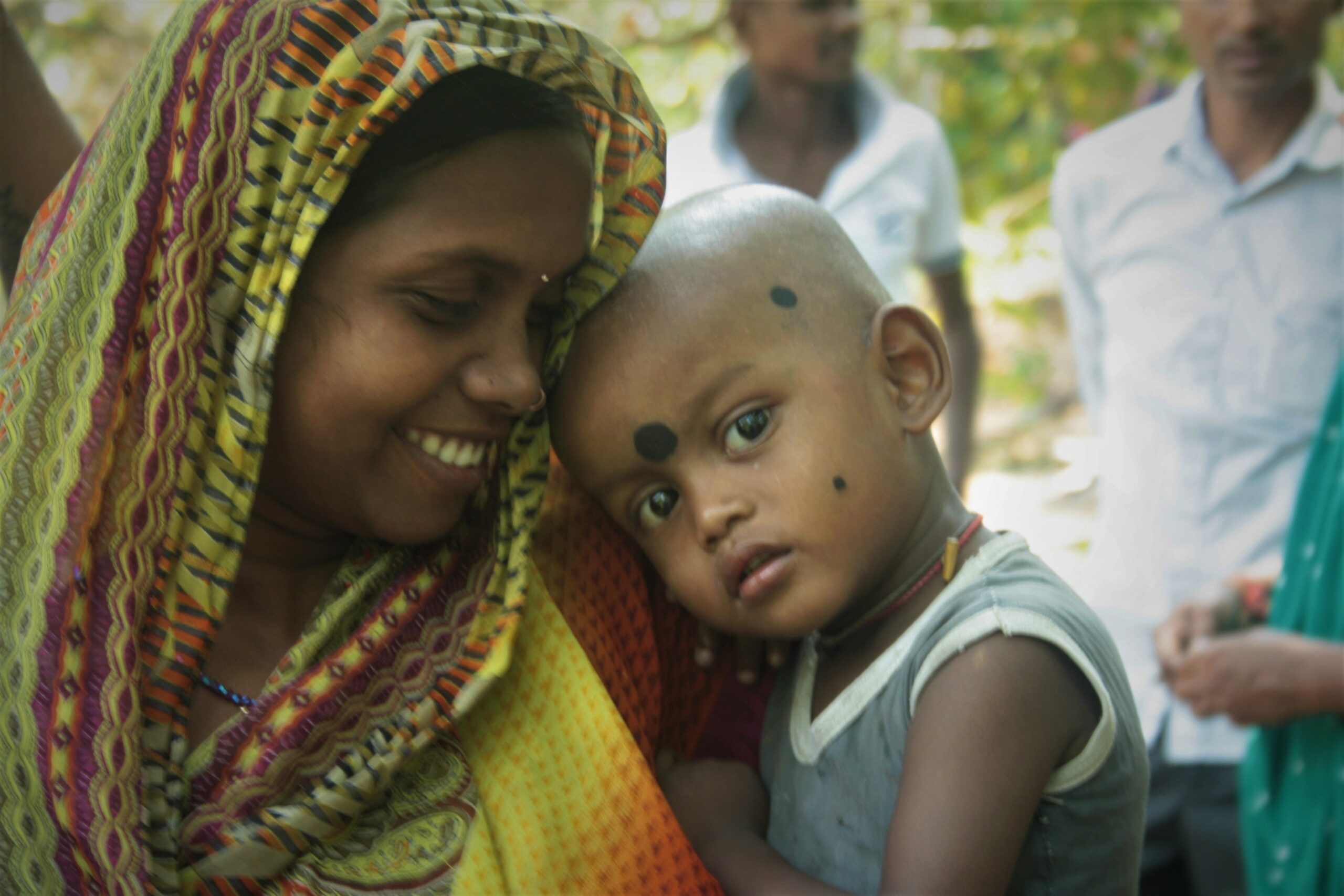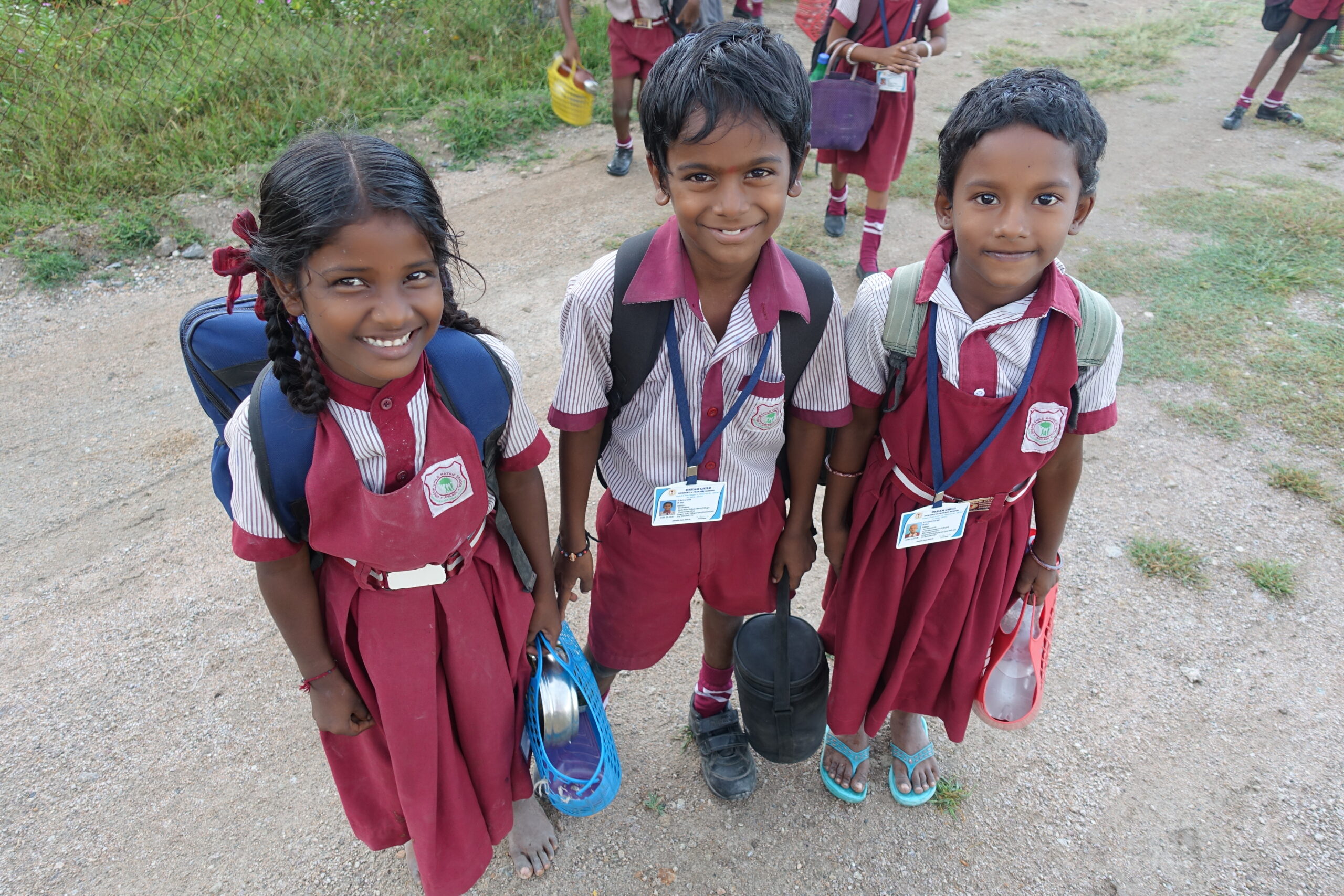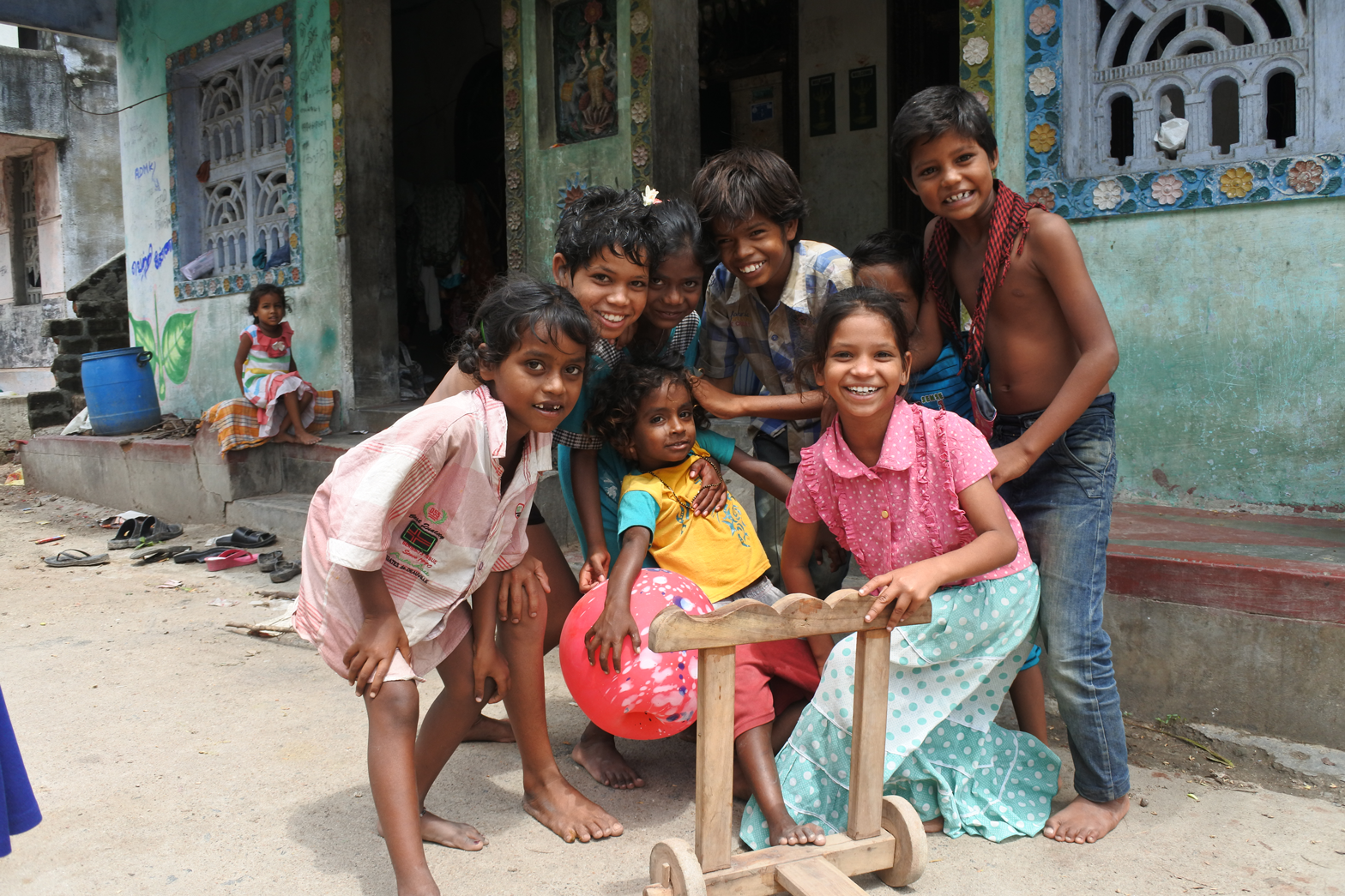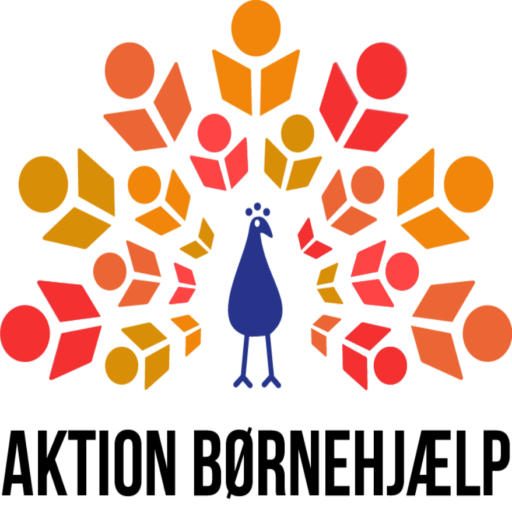Af Andreas Koch Rasmussen, Projekt- og kommunikationspraktikant
29/09/2023
(English version below)

En vigtig del af projektet ”Agents of Change for Empowerment and Health” (ACEH) går på at identificere og ændre nuværende kønsroller i de 160 landsbyer i Odisha, hvor arbejdet finder sted. Sammen med Living Farms, har vi bl.a. en vision om forbedret ligestilling, når projektet er færdigt. Vi har tidligere kunne fortælle, at de unge piger i projektlandsbyerne har krævet deres ret til hygiejnebind, og nu er der kommet endnu en succeshistorie fra projektet. De unge kvinder har nemlig arrangeret en cricketturnering.
I landsbyerne er det ofte kun drengene, der får lov til at dyrke sport, og unge kvinder og piger møder adskillige kulturelle og kønsbaserede barrierer, når det kommer til at dyrke sport i deres fritid. Til trods for dette har de unge kvinder i ACEH-projektet altså organiseret en cricketturnering for pigerne i landsbyen.
Pigerne i landsbyerne fortæller, at de længe har følt sig underlegne i forhold til drengene, og har haft for vane, at dræbe deres egne drømme. På trods af at pigerne bidrager meget i husholdningen, får de ikke de samme muligheder som deres brødre. I stedet for at uddanne sig, har deres job været at tage sig af familien.
Selvom kastene ikke var perfekte, og boldene blev tabt, fløj pigerne rundt i to timer. De kastede sig og faldt, men de rejste sig igen og spillede cricket for første gang i deres liv.
Og hvem vandt så? Det har ingen betydning. At få arrangeret kampen, og bryde barriererne er en sejr i sig selv!
Som en del af ACEH-projektet, er der blevet dannet grupper for piger og unge kvinder i 160 landsbyer. Grupperne giver de unge kvinder et fællesskab, hvor de kan diskutere, hvad de har lært i projektet og udveksle ideer og erfaringer. Og lige så vigtigt, giver det pigerne selvtillid. Pigerne diskuterer jævnligt emner som sundhed, ernæring, kønsdiskrimination, og er langsomt begyndt at tro på, at de kan leve deres liv som de ønsker. Fællesskabet i grupperne er vigtigt for, at de unge kvinder kan støtte hinanden i at påberåbe sig deres rettigheder i landsbysamfundet og få større indflydelse på beslutninger, der påvirker deres liv.
På et af disse møder, bragte en af pigerne et ønske om at spille cricket ligesom drengene. Det har taget meget mod at frembringe et ønske om at spille et spil, som folk i landsbyerne har defineret som et ’drengespil’. Der blev selvfølgelig støttet op om forslaget i gruppen, og de begyndte at planlægge cricketturneringen.
Selvom drengene i starten var forbavsede over pigernes initiativ, smittede pigernes begejstring af, og drengene støttede pigerne i organiseringen af turneringen. De lånte dem blandt andet deres cricketudstyr, og gik med til at være dommere ved turneringen. For mange af pigerne var turneringen også første gang, de rørte ved et cricketbat. Selvom kastene ikke var perfekte, og boldene blev tabt, fløj pigerne rundt i to timer. De kastede sig og faldt, men de rejste sig igen og spillede cricket for første gang i deres liv.
Og hvem vandt så? Det har ingen betydning. At få arrangeret kampen, og bryde barriererne er en sejr i sig selv! Pigerne vandt både over deres frygt, og deres mindreværdskompleks. En meget emotionel dag for alle deltagerne. Vi er selvsagt meget stolte af de unge kvinder for at tage initiativ til at organisere en cricketturnering, der viser deres handlekraft, når de står sammen.
(English version)
Young Indian women break gender barriers with cricket tournament
An important part of the “Agents of Change for Empowerment and Health” (ACEH) project is to identify and change current gender roles in the 160 villages in Odisha where the work is taking place. Together with Living Farms, we have a vision of improved gender equality when the project is completed. We have previously reported that the young girls in the project villages have demanded their right to sanitary pads, and now there is another success story from the project. The young women have organized a cricket tournament.
In the villages, it is often only boys who are allowed to play sports, and young women and girls face numerous cultural and gender-based barriers when it comes to playing sports in their free time. Despite this, the young women in the ACEH project have organized a cricket tournament for the girls in the village.
The girls in the villages, tells us, that they for a long time, have felt inferior to boys and have had a habit of killing their own dreams. Despite contributing a lot to the household, girls are not given the same opportunities as their brothers. Instead of getting an education, their job has been to take care of the family.
Although the pitches were not perfect and the balls were dropped, the girls flew around for two hours. They tossed and fell, but they got back up and played cricket for the first time in their lives.
And who won? It doesn’t really matter. Getting the match organized and breaking the barriers is a victory in itself!
As part of the ACEH project, groups have been formed for girls and young women in 160 villages. The groups provide young women with a community where they can discuss what they have learned in the project and exchange ideas and experiences. And just as importantly, it gives the girls confidence. The girls regularly discuss topics such as health, nutrition, gender discrimination and are slowly starting to believe that girls can live their lives the way they want. The community within the groups is important for the young women to support each other in claiming their rights in the village community and to have a greater say in decisions that affect their lives.
At one of these meetings, one of the girls brought up a desire to play cricket like the boys. It has taken a lot of courage to bring up a desire to play a game that people in the villages have defined as a ‘boy’s game’. Of course, the proposal was supported by the group, and they started planning the cricket tournament.
Although the boys were initially surprised by the girls’ initiative, the girls’ enthusiasm was contagious, and the boys supported the girls in organizing the tournament. Among other things, they lent them their cricket equipment and agreed to referee the tournament. For many of the girls, the tournament was also the first time they touched a cricket bat. Although the pitches were not perfect and the balls were dropped, the girls flew around for two hours. They tossed and fell, but they got back up and played cricket for the first time in their lives.
And who won? It doesn’t really matter. Getting the match organized and breaking the barriers is a victory in itself! The girls overcame both their fears and their inferiority complex. A very emotional day for all participants. Needless to say, we are very proud of the young women for taking the initiative to organize a cricket tournament that shows their empowerment when they stand together.
